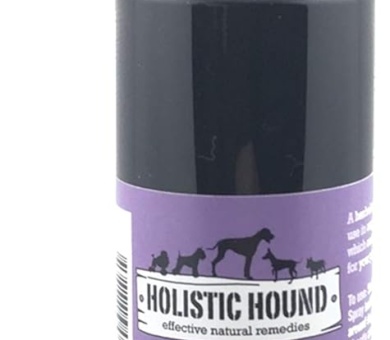Trendy & Specific Supplement Types: What’s Hot in the Wellness World
In the ever-evolving landscape of health and wellness, dietary supplements continue to surge in popularity, driven by a growing emphasis on preventive care, personalized nutrition, and biohacking. While multivitamins and fish oil remain staples, a new wave of trendy, niche supplements has captured the spotlight. These products promise targeted benefits, from glowing skin to enhanced cognitive performance. Let’s explore the most sought-after supplement types of the moment and why they’re trending.
1. Collagen Peptides: The Beauty-From-Within Boost
What it is: Collagen, a protein vital for skin elasticity and joint health, is available in hydrolyzed (broken-down) forms as powders, capsules, and gummies.
Why it’s trending: With a surge in "beauty supplements," collagen is marketed as a way to combat wrinkles, strengthen hair/nails, and support joint mobility. Celebrities and influencers often tout its benefits, while studies suggest it may improve skin hydration and reduce joint pain.
How to use: Stirred into coffee, smoothies, or soups. Popular brands include Vital Proteins and Sports Research.
Controversy: Critics argue dietary collagen may not directly translate to skin collagen production, but anecdotal success keeps demand high.
2. Adaptogens: Stress Resilience in a Bottle
What it is: Herbs like ashwagandha, rhodiola, and reishi mushrooms that supposedly help the body adapt to stress.
Why it’s trending: Modern life’s relentless pace has fueled interest in natural stress solutions. Adaptogens are framed as “balancers” for cortisol levels and energy. Ashwagandha, for instance, is linked to reduced anxiety in clinical trials.
How to use: Capsules, teas, or powdered blends added to lattes (e.g., Moon Juice’s "Dust" line).
Watch out: Effects vary, and some herbs interact with medications. Quality sourcing is key.
3. Probiotics 2.0: Postbiotics and Spore-Based Strains
What it is: Beyond traditional probiotics (live bacteria), new players include postbiotics (beneficial byproducts of fermentation) and spore-forming strains like Bacillus coagulans.
Why it’s trending: Postbiotics offer gut benefits without requiring live cultures, appealing to those with sensitive digestion. Spore probiotics survive stomach acid better, making them more effective.
How to use: Supplements like Seed DS-01 or fermented foods like kimchi.
Science note: Research is promising but still emerging, especially for postbiotics.
4. Nootropics: Brain Boosters for the Overwhelmed
What it is: Compounds like lion’s mane mushroom, L-theanine, and synthetic nootropics (e.g., Noopept) that claim to enhance focus, memory, and mental clarity.
Why it’s trending: The rise of remote work and productivity culture has driven demand for cognitive enhancers. Natural options like lion’s mane are praised for nerve growth factor support.
How to use: Stacks (combinations) in capsules or as “smart coffee” blends.
Caveat: Effects are subtle, and synthetic nootropics lack long-term safety data.
5. NMN (Nicotinamide Mononucleotide): The Longevity Elixir
What it is: A precursor to NAD+, a coenzyme linked to cellular repair and aging.
Why it’s trending: Touted by anti-aging enthusiasts, NMN is believed to boost energy, slow aging, and improve metabolism. Tech moguls like Bryan Johnson have popularized it.
How to use: Sublingual tablets or powders.
Controversy: Human studies are limited, and the FDA recently restricted NMN as a supplement due to drug approval conflicts.
6. Plant-Based Protein & Greens Powders
What it is: Vegan protein blends (pea, hemp, pumpkin) and superfood greens (spirulina, chlorella, wheatgrass).
Why it’s trending: Aligns with plant-based diet trends and offers convenience for nutrient-dense meals on-the-go.
How to use: Shakes or baked goods. Brands like Orgain and Athletic Greens dominate.
Bonus: Many include adaptogens or probiotics for multifunctional benefits.
7. CBD and Beyond: Cannabinoids for Relaxation
What it is: CBD (cannabidiol) and newer cannabinoids like CBG and CBN, marketed for relaxation, sleep, and pain relief.
Why it’s trending: As cannabis stigma fades, these non-psychoactive compounds appeal to those seeking natural alternatives to pharmaceuticals.
How to use: Oils, gummies, or topical creams.
Note: Regulation is patchy; third-party testing is crucial for purity.
Choosing Wisely in a Crowded Market
While these supplements offer exciting possibilities, experts urge caution:
- Research: Look for peer-reviewed studies backing claims.
- Quality: Opt for third-party tested brands (NSF, USP).
- Personalization: Consult a healthcare provider to avoid interactions or redundancies.
The future of supplements lies in personalization and transparency. As science advances, expect even more targeted solutions—from microbiome testing kits to AI-driven nutrient recommendations. For now, the key is to stay informed, skeptical, and intentional about what you put in your body. After all, trends come and go, but health is forever. 🌿✨









